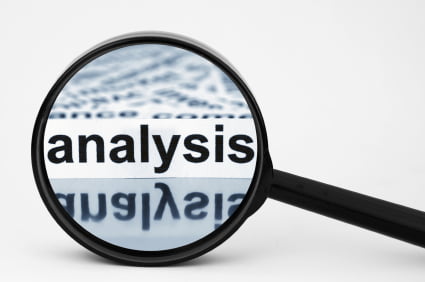You likely already know that it’s a smart idea to check your credit reports annually.
In fact, by law, you’re entitled each year to one free copy of your credit reports from each of the country’s largest credit bureaus – Equifax, Experian and TransUnion.
Sadly, if you’re like most adults in the U.S., you probably fail to review your credit report every 12 months or so. It’s possible you think you already know what is in your credit files. Or maybe you’re too scared to confront potential credit problems.
Or perhaps you might mistakenly think that your credit report is simply a summary of information about your credit and loan payment data as reported by various creditors.
While your credit report certainly does primarily track your payment history – including what type of debts you have, how much you owe, and whether or not you’ve paid your bills on time – a credit report also contains so much more than that.
Here are four surprising things contained in your credit report that you might not have suspected – as well as six other things that you won’t find in your credit files.
What’s Included In Your Credit Report
1. Personal information about where you’ve lived
Your current home address is one of the bits of information about you that helps creditors and others verify your identity. But your credit report doesn’t just contain the specific address where you happen to reside today. Your report also documents your previous home address and often even those places you lived temporarily.
Furthermore, in the past, only mortgage payments were reflected on credit reports. But these days, all types of housing payments – including rent payments – are being included in U.S. credit files. So don’t think you’ll “fly
under the radar” from a credit standpoint if you live somewhere only briefly or if you pay rent instead of a mortgage.
2. Job/career information about where you’ve worked
If you’re filling out a loan application and a lender asks for your place of business, it could be a red flag if you tell them one workplace but your credit report indicates another job. That can happen, though, because many people’s credit reports simply don’t reflect their present job, but rather their prior workplaces.
So if you’ve started a new job in the past year or two and you want that information included on your credit report, make sure you contact the credit bureaus and get that data added to your credit files. In most cases, it’s best to have an up-to-date credit record about your work history.
3. Personal information about family debts you owe
Don’t panic about this one. That $250 loan from your sister isn’t going to show up on your credit report. But that overdue child support debt you have very well could appear on your credit report. Ditto for that $2,500 loan you got from a nice Uncle – especially if you formalized the loan through a peer to peer lending service or any company that helps document and arrange family loans.
4. Non-traditional financial information that doesn’t involve credit or loans
I mentioned already that non-traditional housing data, such as rent payments, are a new addition to credit reports. Increasingly, so are other forms of financial information, such as whether or not you’ve ever applied for or received a payday loan, and data about how you manage utility accounts.
In some instances, even payments you make to childcare providers can and are now being tracked – particularly for those with “thin” credit files who are purposefully trying to establish or build a credit rating.
Non-traditional data is usually tracked by smaller credit bureaus, research firms, or credit-gathering companies and then sold to large credit bureaus or credit scoring businesses like FICO, the creator of the FICO credit score.
What is Not Contained in Your Credit Report
For the record, there are also several personal bits of data about you that are not included in your credit reports. Here are six of them:
1. Your gender
2. Your race
3. Your age
4. Your ethnicity
5. Your religion
6. Your income
That last factor – income – often surprises people who think that income (or even assets) play a role in credit. They don’t. That’s by design to keep the credit reporting and credit scoring system on a level playing field.
Of course, having a higher income may generally translate into a person being better equipped to handle bills and other financial responsibilities. So in some ways, higher incomes could be, at least indirectly, linked to stronger credit ratings.
But in truth, anyone of any income can have excellent credit – or poor credit; it all depends on how well they manage credit obligations. Likewise, people of varying racial or ethnic backgrounds can have good (or bad) credit. Thus, federal law prohibits those factors from appearing in your credit reports.








